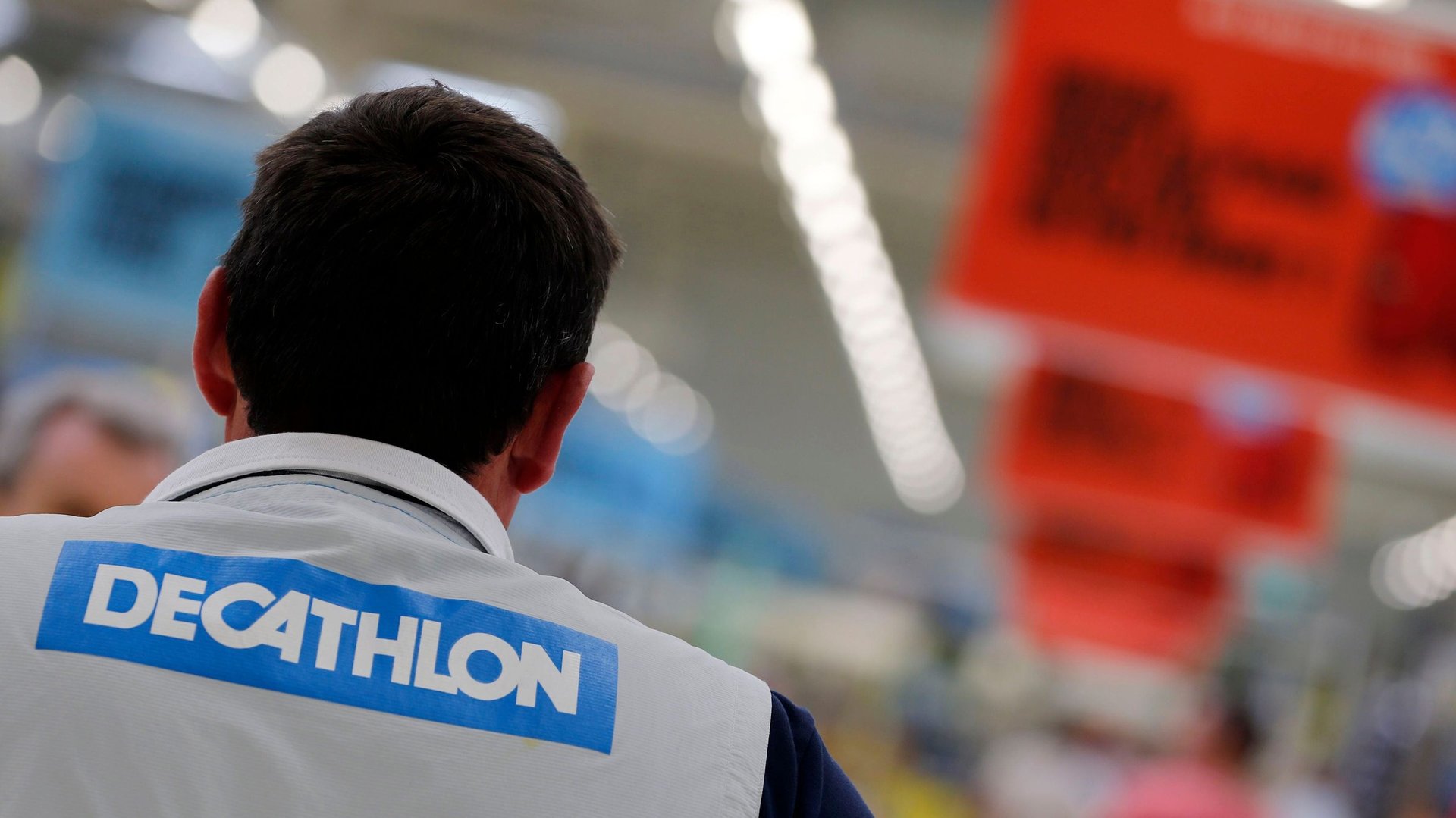French politicians pressured a sports brand into ditching plans to sell a “running hijab”
Within France’s population of roughly 6 million Muslims are a number of women who wear a hijab and play sports. To satisfy their need to do both simultaneously, Decathlon, a French sporting goods company, had planned to introduce a “running hijab” in the country.


Within France’s population of roughly 6 million Muslims are a number of women who wear a hijab and play sports. To satisfy their need to do both simultaneously, Decathlon, a French sporting goods company, had planned to introduce a “running hijab” in the country.
But the brand says it is now cancelling those plans, after a fierce backlash from French politicians that included suggestions of a boycott.
Decathlon had previously introduced the sport hijab in Morocco, and according to the BBC, intended to begin selling the product in 49 countries, including its home country, in March. The hijab, however, has become a particularly contentious topic in France. Many in the country see it as an affront to the secularism enshrined in French law, as Quartz’s Annabelle Timsit explained after French politicians lambasted Gap over an ad featuring a young girl in a hijab. As France’s Muslim population has grown, defenses of that secularism have focused much more on Islam than other religions, and the hijab—a highly visible symbol of Islam that critics in the country have called a sexist, patriarchal means of oppressing women—has been a chief target.
Lawmakers and others attacked Decathlon (link in French) with that reasoning. Agnès Buzyn, France’s minister of solidarity and health, told radio station RTL (link in French) that it was a vision of women she didn’t share, and said, “I would prefer if a French brand did not promote the headscarf.”
“My choice as a woman and citizen will be to no longer put my trust in a brand that breaks away from our values,” Aurore Bergé, the MP and spokesperson for president Emmanuel Macron’s political party, said on Twitter (link in French).
Decathlon responded that its focus was making sports more accessible, and that some female runners don’t have a suitable hijab. “Our goal is simple: to offer them an adapted sport product, without judgment.”
The pressure didn’t diminish. A spokesperson for Decathlon told the Independent that staff in its stores had “been insulted and threatened, sometimes physically,” and that on Tuesday morning (Feb. 26) its customer-service team got more than 500 calls and emails.
Later that day, Decathlon announced on RTL radio (link in French) that it would not go ahead with the plan to sell its sport hijab. “We are indeed making a responsible decision… not to market this product in France at this time,” said Xavier Rivoire, the company’s head of communications.
A couple years ago, Nike faced criticism too when it became the biggest international brand to launch a hijab for sports. But it also received a good deal of praise in its home country for embracing diversity and inclusivity with the move.